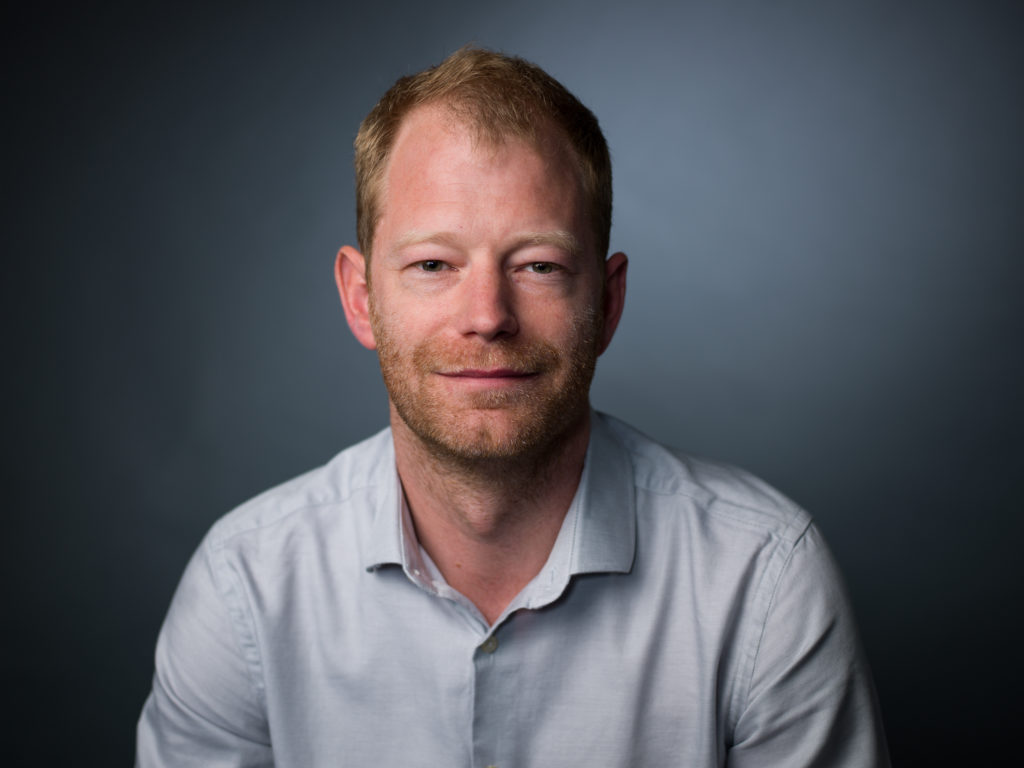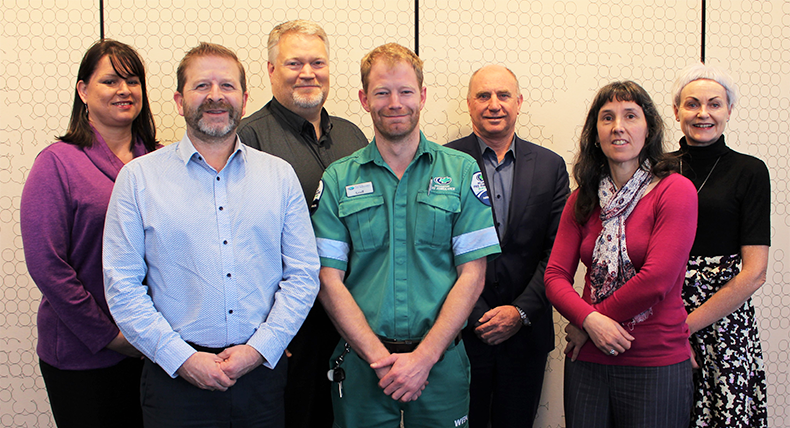Geoff is someone that seems to achieve 4 times more than the average person in the same amount of time. He has a knack for juggling multiple projects without dropping a single ball.
I wonder if he secretly owns a time machine.
- Executive Director of HealthCare Services at Wellington Free Ambulance
- owns the Silverspoon (he was the lucky guy who offered to buy it off us!)
- runs a side business: www.thewebsiteshop.co.nz
- owns a rental property
- business trips to Copenhagen / Melbourne Business School last year
- learning to sail, so that he can take the family on a mini retirement in the Caribbean
- made time for multiple snowboarding trips over the last few years
Despite all this, Geoff is just a normal down-to-earth guy. He’s a partner to Jen, stepfather to Willow, and dad to twin boys Reef and Fox. He loves to spend time with his family, has an awesome veggie garden, he has built a cool little playhouse for the kids, and has a nice lawn.
Geoff has always doubled up.
I first met Geoff at McDonald’s back in 2004. He was studying full time at Victoria University and still working 30 – 40 hours a week as a shift manager. He put all his earnings towards paying for his living costs so that he graduated without a student loan.
I continued to work at McDonald’s, and Geoff moved over to the dark side: the new Domino’s store across the road. He worked his way up the food chain over there and it wasn’t long until he was running the whole area. He eventually owned a store, becoming New Zealand’s youngest Domino’s franchisee at the time.
While he owned the Domino’s store he studied to be a paramedic. He would go on ambulance ride alongs at night when he wasn’t working. This was all while he was hands-on with his Domino’s as the owner as well as the main guy running the store. Once he got his second ambulance qualification he became a paramedic. He continued to juggle his Domino’s commitments for a while before selling his share of the store.
Once at WFA, it didn’t take long for Geoff to move into management. He started as a shift manager, and eventually he was promoted to Executive Director of Healthcare Services. Surely this would be the turning point, where he is forced to put his side projects on hold? Not a chance. Instead, he did the opposite. A year into his management role at WFA he purchased the Silverspoon.
Where the heck does he find time to do all that? I wanted to know his secrets, so I asked him a few questions over a beer. While I was interviewing Geoff, he frequently had a look on his face like I had just asked “is the pope Catholic?” He would give me a few one-line answers, always along the lines of, “I just do what’s obvious,” followed by a shoulder shrug.

Left to right: Bevan, Geoff, Joni, Luke, Josh
Return on Investment
What I have noticed about Geoff is that he leverages his time far more than the average person. Yet he still seems to have free time to come snowboarding or sit down for a beer. If time was an investment, Geoff would be getting double the returns that the rest of us are getting.
I wanted to know why.
I had to explain to him that this is not normal, that most people would struggle to keep up with one or two things on his list, let along the entire lot combined together. He is the youngest executive by several years at WFA. I imagine this role alone would be enough to consume a person’s entire week, and mental capacity, if they let it.
The first thing Geoff mentioned was that he feels that he still needs to work at managing his time, and despite everything he does, he is still procrastinating. This was interesting to me. It highlighted that no matter how good you are at what you do, you’ll always think someone else is doing slightly better.
The more we talked, the more I learned that Geoff is very purposeful about what he commits to and how he sets up his calendar each week.
You’re a dad, business owner, friend and executive, yet still find time to the things you want to do. How do you juggle your time?
I break my week down into time blocks. There are things I have to do at a certain time, like my role at WFA, then then there are things I am flexible to do on my own terms such as The Website Shop and Silverspoon.
I have made a rule that when I am at WFA they get 100% of me. I don’t crossover other areas. I am mindful not to check personal emails or get caught up doing other stuff in this time. This helps keep me focused on work and get more done.
When I’m faced with lots of different things to do I ask myself “what’s the one thing that I could tick off today that would make me happy I’ve achieved something?” Something small like a specific email I have to send or a small problem I have to think my way through. Then I get that one thing done. Everything past that is a bonus. If you start with just one task of substance every day, then you burn through more in no time.
Is this all at the expense of family?
Family doesn’t come last in priority, but has more flexibility. I aim to make a point of giving them quality time every day. By leaving the office at 4pm every day I don’t sit in traffic. This gives me that extra bit of time to hang out with the kids. I aim to have a family meal every night at the table.
(I just have to mention that Geoff built that table himself! —Josh)
How do you schedule these blocks?
Segmenting: Start with the big block, WFA.
I aim for 40 hours over 4 days, based around a core 6am – 4pm Tuesday Wednesday Thursday. Then I add one more day, either Monday or Friday. I break this down into time blocks on the calendar. 1- 4 hour blocks of time where I want to achieve a certain task.
I have a think about what’s important and urgent and make sure that’s on the calendar. After that it’s a gut feeling. I label each time block on the calendar with the task I want to complete.
I aim to allow more time than required for each task, i.e., a 1-hour task gets 2 hours on the calendar. Having large time blocks gives me freedom for interruptions but reminds me what I need to achieve. I do my best to focus on that one thing at the time.
This is the foundation that kicks each week off. After than I aim to complete my core Silverspoon tasks on a Tuesday night. This is when I pay the wages, meet the key staff.
This means I still have 2 full days available to do work stuff, plus a bonus day a week to do a bigger family type activity.
(This reminds me of this old rocks and pebbles video. It’s super cheesy but an excellent and vivid example —Josh)w
How do you control your time blocks?
I start by classing it as either present or productive time.
Present time: I am in the office, I am happy to be interrupted.
- People always trump calendar, meaning that I try not to blow people off who have stopped in unannounced just because I have scheduled a time block to do something. Often that 5-minute conversation will save me a 30-minute meeting a couple of weeks later.
- In saying that, still, no one chooses my time for me.
- If someone needs you to make a decision, and you already know what to do, do it, don’t procrastinate. Don’t schedule a 30-minute meeting for something you can solve with a 2 minute decision.
Productive time: I do productive work in specific environments/times.
- The morning before others arrive at 8am. Never any meetings before 8am: this 2 hours is so valuable.
- I like to work in a cafe. It’s amazing what you can achieve in 1 hour in a cafe. If I feel stuck in a rut, a new environment gets me going.
How do you create time and space to think?
I do yoga, a 1 hour session 2 – 3 times a week. This is a good time to think about specific work problems. I also go swimming. The beauty of swimming is that I can’t take my phone with me in the water, so it’s not a distraction. It gives me time to decompress what’s going on in my mind.
(This is important, because often with exercise, or when we’re getting out in nature, we fill our heads with noise: podcasts, music, etc. In doing so we rob ourselves of the chance to let our mind unwind. —Josh)
What does a typical morning look like for you?
- I am usually in bed by 9pm. A reminder goes off 30 minutes before bedtime.
- I aim for 8 hours sleep. Sometimes I stay up late, but I’m mostly asleep by 10pm.
- Wake up at 5am. I use a sleep cycle alarm. It doesn’t always work perfectly, but it’s better than nothing.
- No mucking around: shower, hit the road, go to work. I aim to be there at 6am.
- As mentioned before, I will then use this valuable morning time to tackle an important task.
What do you do when there are multiple options vying for your time?
- Always get cracking with something:
- If I have to do something and
its not obvious, just take a first small step. Put my laptop on the table, open it, then sit at the table instead of on the couch. - One action leads to another.
- If it’s not obvious and urgent (like a leak in the roof), just get cracking and pick one (don’t get bogged down with “analysis paralysis”).
- If I have to do something and
- Be at peace with the
unfinshed stuff:- Guage the pressure of what’s on the list.
- Don’t be hard on yourself.
- I have learnt to make peace with the fact that there will always be more things to do than I am physically capable of.
- Be aware of my natural
tendancy to slack off:- Set the laptop up on the table, sit there instead of the couch
- Set a mini-goal to move a project forward: what do I want to have completed before I leave for the day?
(Strive for Progress, not perfection! —Josh)
How do you move things forward?
I slack off as much as everyone else. Last week I watched YouTube 4 nights out of 7. I definitely have moments where there is so much to do.
If you have 20 things to do, and you’re not sure what’s the most important, just start something, anything. The worst thing you can do is nothing.
Once I am into the momentum of a project I make sure to tackle the sh*t stuff. It’s going to suck no matter when I do it, so I might as well get it out of the way.
Having that uninterrupted time in the morning is critical. That is where I achieve a lot. I focus on using that wisely.
What are your favourite quotes about time management?
“The best time to plant a tree is 20 years ago, and the next best time is today.” —Chinese Proverb
I relate this to work when I am feeling behind. It’s easy to fixate on how I should have done this ages ago, but I remind myself, the next best time to do this is now!
“Better Three Hours Too Soon Than a Minute Too Late.” —William Shakespeare.”
When I catch a flight, I don’t like cut it fine. Rather than planning for everything like the commute and check in to all to be perfect, I add an extra an hour. When I get to the airport an hour early I either work uninterrupted, or I enjoy some free time, wander around and check it out, or I read. This is always awkward when you’re sharing a taxi with someone who likes to cut it fine.
“The most valuable of all talents is that of never using two words, when one will do.”—Thomas Jefferson
Not being wasteful, especially with your time.
“The days are long, but the years are short.” —Gretchen Rubin
The value of time with your kids. Every day with your kids is a hassle and a challenge but you only get 1 year when they are 3, then it’s gone. Make the most of each moment.
“The biggest waste of resources is doing well, that which did not need to be done.” —Tim Ferriss
Making sure what you’re doing is aligned with your goals. If it is not, why are you doing it? It’s so easy to get distracted doing things in the moment you think you need to do, but actually they don’t get you closer to the end goal,
“We all have two lives. The second starts when we realise we only have one” —Confucius
Never forget the value of the time that you have got.
“There is never a right time, but there is increasingly a wrong time.” —Unknown
The longer you wait to do something you know needs to be done, the more and more it becomes the wrong time.
“How we spend our days is of course how we spend our lives.” —Annie Dillard
Ultimately you still need to live in the moment and enjoy what you’re doing, There is no point hating what you’re doing now for some future reward that may or may not come.
Have you meet resistance in the workplace?
Not that I am aware of. Initially, some people made offhand comments like “oh, you’re working today.” Once I educated them about how my weekly schedule works they took me more seriously.
You’re now backed by the flexible working hours law. Which means your employer has to consider your requests and how the business might accommodate it. It doesn’t mean they have to say yes but it ensures that they engage with you.
It helps that attitudes are changing towards flexible work, and the most important thing is to make sure that your work speaks for you and that you make time for those that need it. As long as you’re still having regular contact with those that you need to and you’re outputting
Because I have other things to do, I can’t do more than 40 hours at WFA. Whereas if I didn’t have other commitments it would be easy to let this slip into 50 or 60 hours.

Some Closing Thoughts
I have known Geoff for 15 years, but this interview was an eye-opener for me. It has changed how I approached my days. I really like the idea of planning out blocks of time and assigning them tasks.
Often I find myself stuck, overthinking something, looking for the perfect way forward. Talking with Geoff has encouraged me to find and do small tasks to push a project forward. It could be as little as tidying your desk, printing a draft of a report, or getting a tool out. Do something, anything, and let the momentum move me forward.
The little things add up. There was a few clear big things Geoff does to set himself up for success. But after that it’s all about lots of little things adding up to be a lot.
A Memory I Have of Geoff
One sunny afternoon, Geoff showed up to work with all his motorbike gear on. He told us he had just crashed his motorbike. It must have been minor, we thought. He was here at work, after all. Later that night we found out that a car had switched lanes without seeing him, and he flipped over the car and went sliding along the motorway. He worked through his shift that night like it was any other.
I asked Geoff why he didn’t call in sick. No one would have thought any less of him. He viewed it as the opportunity to demonstrate that he was a team player and the type of worker that “doesn’t call in sick at the drop of a hat.” He cares about the places he works.
I still can’t believe he showed up to work that day, and he still demonstrates this same attitude and commitment to his work.


